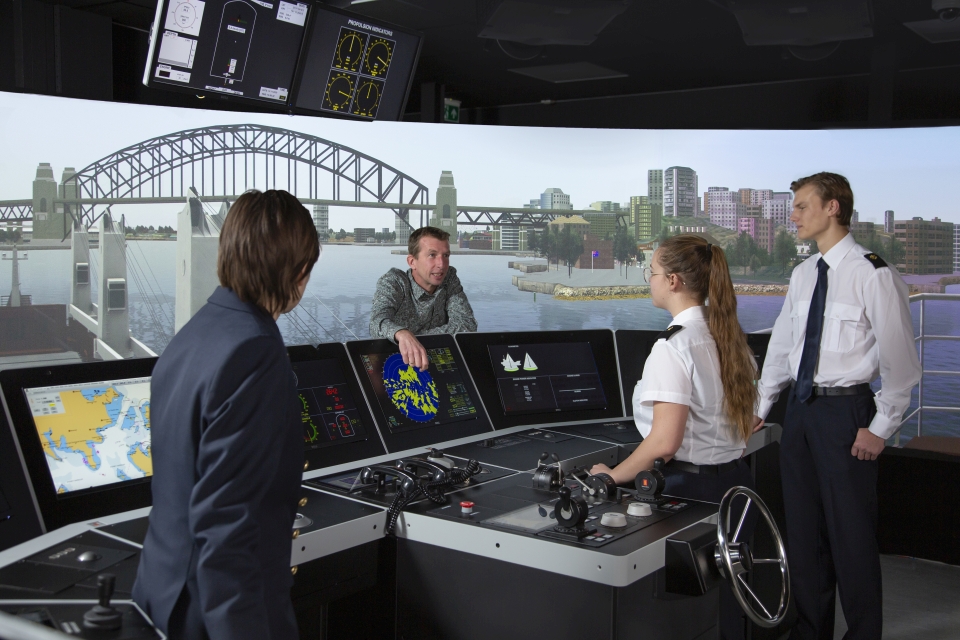Dutch maritime education is doing a lot to deliver the next generation of highly skilled maritime professionals. SWZ|Maritime’s May education and regulations special features developments in Dutch maritime education, looks into the use of simulators and reveals some of the research done by Dutch students. In addition, we look at regulations for offshore vessels and for salvaging shipwrecks.
“Tight labour market breaks all records”, reads one of the headlines in Dutch newspaper De Telegraaf of Tuesday, 17 May. The shipbuilding and shipping industries have known all about it for a long time. Since the major waves of dismissals in these sectors began in the late sixties and seventies, there has been a great deal of uncertainty in the maritime labour market.
The author of this editorial of SWZ’s May issue experienced this himself when, in 1970, he was told by his uncle, who was still sailing as a ship’s engineer, that it would be better for him to forget about going to a nautical school and having a good career as a first mate and perhaps even as a captain. With me, many Dutch people have refrained from choosing a maritime career. The result is that every so often, there is a huge shortage of personnel.
In shipping, this is now an almost permanent phenomenon. Only a minority of the officers, even the captains, have a Dutch passport. In the higher ranks, it is mainly Russians, Ukrainians and Balts who man the Dutch ships. But the Dutch who have been educated at a Dutch nautical college are still in demand. It is just a pity that the average sailing time has been in sharp decline for years.
In shipbuilding, due to the volatility of the hog cycle – boom years followed by deep downturns – there is often little job security. So former shipbuilders often look for work in other industries, which is unfortunate because a lot of knowledge and experience is lost as a result. But a little more flexibility on the part of the employees and their own responsibility for the quality of training and up-to-date knowledge and skills that the world demands can also make a difference when it comes to opportunities on the labour market.
Because in the current labour market, in theory, there is work for everyone, but from the employers’ perspective, it is also about the quality of work and jobs. Dutch maritime education is doing a lot to provide the required quality. Many of the stories that our colleague Sander Klos has collected for this education special are testimony to this. Articles about the role of a practor (a teacher-researcher that operates as mediator conducting and linking research with education practice), the importance of new developments such as machine learning, the adjusted curriculum Marine Technology of the TU Delft, the great importance of the use of simulators in education and the appealing story of Willem Stolk, who set up a ship design office, Marimecs, all by himself and is now about to start taking it easy.
This is editor-in-chief Antoon Oosting’s editorial accompanying the May 2022 issue.
SWZ Archive
Our digital archive is once again available to subscribers and they can read the digitial version of our May issue there. Subscribers can register here to gain access. Not yet a subscriber? Visit our subscription page.
The articles in SWZ|Maritime’s May issue
In addition to the regular sections such as Dutch news, Markets, Maritime monthly, Global news, Book reviews, news from the KNVTS and Mars Report, the articles (some in Dutch) in the May issue are:
- Practor betaal je om te veranderen
- Bachelor Maritieme Techniek weer onder de actuele loep
- Rules and regulations for offshore work vessels
- Onderwijs denkt na over beter gebruik simulatoren
- Strategic Dutch location for training at Carnival
- Oorlogswrakken zijn stukjes buitenland
- Hbo dataminor nu extern beschikbaar in modules
- Betere berekening weerstand met machine learning
- Invloed wind op brandstofverbruik
- Marimecs wordt onderdeel van MP Group Joure
- The Global Mercy gears up for Africa
Picture: Simulators are an important part of Dutch maritime education and even replace some of the mandatory sailing on board a ship. Nevertheless, efforts are being made to make even better use of them (SWZ|Maritime’s May 2022 cover picture, supplied by NHL Stenden Hogeschool).








